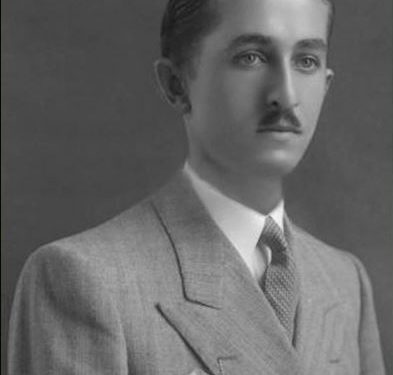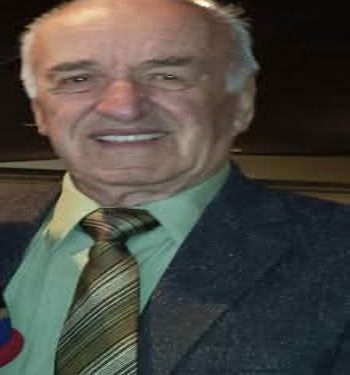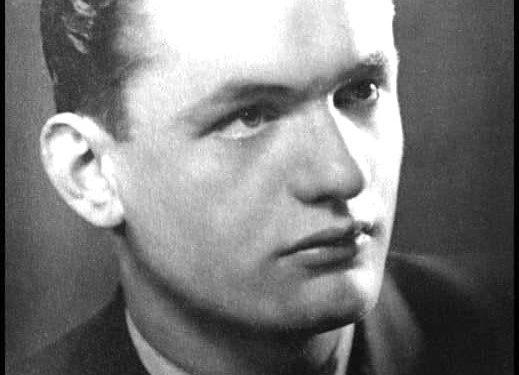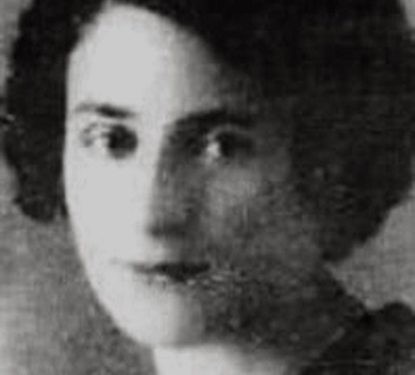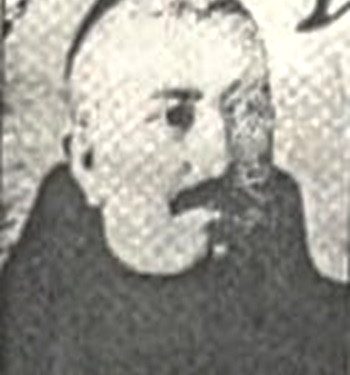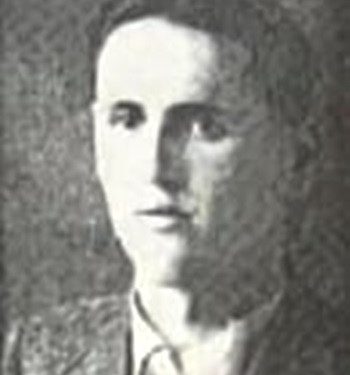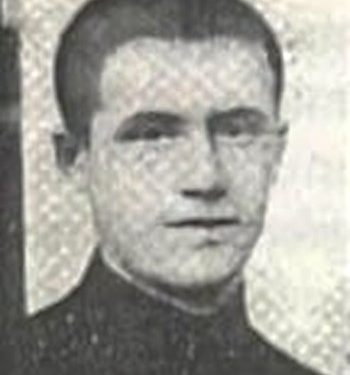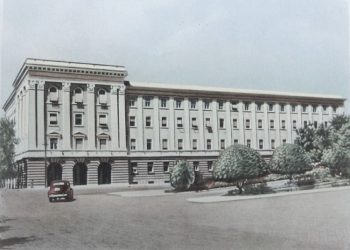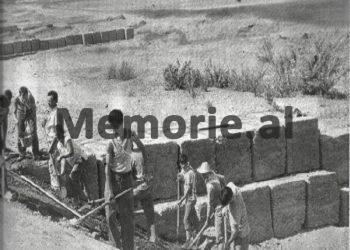By Ahmet Bushati
Part twenty-two
Memorie.al/After the flag was altered in 1944 with the addition of the communist star, Shkodra transformed into a center of resistance against the regime, paying a high price for its tradition of freedom. By April 1945, high school students, already feeling betrayed by the promises of the war, gathered to oppose the new terror that imprisoned and killed innocent people. Communism turned Kosovo into a province of Yugoslavia, while Shkodra was punished for its “historical crime”- its defiance against invaders. The “Postriba Movement” became a tool to suppress all dissent, plunging the city into an unprecedented spiral of suffering: imprisonments, executions, and the destruction of families. The high school students, alongside citizens, became symbols of resistance, while some “young communists” turned into tools of the State Security, leading to expulsions, imprisonments, and internments.
Four times, Shkodra rose in armed rebellion, but history forgot these battles. This book is written to remember the countless prisoners, the tortured, the killed, and the parents who suffered in silence. It is a warning against dictatorship and a plea for future generations not to forget the sacrifices made for freedom.
Continued from the previous issue
In the Footsteps of a Diary
Shkodra in the first years under communism
Mirdita’s Traces
Mirdita’s struggles and battles developed over several years against the communist regime, led initially – as per tradition – by the sons of the Gjomarkaj family, Marku, and after his assassination on June 13, 1946, by Lleshi, – just as brave as his brother Marku had been – comprise a chapter in itself, which demands and deserves time and competence, and as such, it remains the duty of others to reflect it with its numerous and rare acts, in terms of the courage and heroism of an extremely poor, but brave and freedom-loving people.
Thus, without so quickly detaching myself from Mirdita and her heroic resistance, as well as from her so painful and dignified drama, I thought I would give the readers, however cursorily, an idea of the extent of Mirdita’s participation in the war against the “Forces of Persecution”, over several years, as well as of her sufferings, although, as has been said, they deserve a separate work:
In short, it can be said that the large Gjomarkaj house in the center of our city was one of those rare Albanian houses that paid the price of human lives to communism, as well as the imprisonment or internment of all its members without exception, starting from the first day of the communists’ coming to power until their end.
Without mentioning the murdered members of this house or its dead wives, during the many years of exile, I will tell you that Deda, the only and last of the five brothers, after serving sixteen years in prison, would spend another thirty years in exile, and that his sister Marta, after three years in prison, would also serve thirty years in exile, and that Gjoni, the son of the murdered Mark, would serve forty-four years in exile, which he had begun to serve since he was only four years old.
They said that the heroic resistance of the people of Mirdita against the communist regime, their participation in various forms – even massive ones – in the fight against the “Forces of Persecution” and generally its painful drama, are a work in itself. However, I only want to give a rough idea of the extent of his wars during the first years of the communist regime, as well as the macabre scene that that government had staged in retaliation for the murder of Bardhok Biba, the all-powerful commissar of Mirdita:
There were so many fighters in the anti-communist resistance in the mountains of Mirdita, and also so many killed, that when Ndue Pjetër Gjomarku, their commander – after the murders of Mark and Llesh Gjomarkaj – returned from Italy, where he had been on a specific mission for a year, in his book “In the Mountains and in Exile”, he would express with despair: “There were only 300 fighters left, the rest were killed”!
When the murder of Bardhok Biba occurred, – as had been decided by the “Assembly” of the Mirdita fugitives – the people of Mirdita, who had never had enough bread in their lives, would be forced to experience reprisals and cruelty from the most unspeakable sources: Hundreds of Mirdita fugitives would be arrested on that occasion, and many families would be sent to exile, labeled as “reactionary” and “linked to the fugitive”!
In one of those first days after the murder of Bardhok Biba, the Government and the Security would forcibly bring to Rrëshen a population of about two thousand people, men and women, and before their eyes, for terror, those criminals, in collaboration with every local spy, would play the most tragic act ever to happen, one that humanity had abandoned for hundreds and hundreds of years: Before the eyes of a people terrified to death, four men would be hanged, men with the name Mirdita and ten others, placed in front of a pit dug for them, and they would be shot.
Meanwhile, something unusual, unexpected and very clever would happen: Mehil Doçi, contrary to the sadness and mourning of all of us on a Mirdite, would address Mehmet Shehu – who had led the operation during those days – asking him to allow him to participate in the execution of those with whom he had lost his country and home in order to have brothers, as a half-brother, he was with Captain Mark Doçi, who for three or four years had been continuing to suffer the communist prison with dignity, and the brother with two others who came after him, and who would later suffer many years in prison.
For greater cruelty, the sadistic murderers, in order to satisfy their feelings of hatred and revenge as much as possible, would throw the half-dead into the pit and on their bodies, still barely breathing, would throw shovel after shovel of earth, while from the depths of the pit the sharp moans of the victims could be heard saying: “Kill us, I’m alive.”
The Girl from Shkodër, the Heroine of Kosovo, Marije Shllaku
Few people in Shkodër know that fifty years ago, a young girl from their city, beautiful, quiet, agile and very courageous by the name of Marie Shllaku, when she was no older than twenty-two years old, had managed to take her place as a true Albanian Amazon among men’s assemblies and distinguish herself in bloody battles and battles against Serbian partisans.
Another hundred years before that time, one of her great-grandfathers, after finally abandoning the “Palace” of Dukagjin and falling in Shkodër, had settled in the “Badre” neighborhood. Years later, his heir, Mark Simoni, with a pub that he had opened in the “Gjuhadol” neighborhood, had raised three daughters, among who was Marie and a boy named Ndoc.
After Maria had finished high school in her hometown, – having been in the same class as Qemal Draçin, Emin Duraku, etc., – she would master the Italian and French languages and to a lesser extent Latin and ancient Greek. Marija would begin her political and combat activity in 1942, to continue it until the end of 1945, when she, with ten wounds on her body that were still unhealed, would appear before the firing squad with her head held high, praying for a free Kosovo.
Soon Marija would connect with Bazi i Canës (Abas Kupin) and his influential people, who would more than once mediate for her to be placed in a job. With their interest, Maria would once work as a deputy secretary in one of the ministries of that time, from where she would also feed political information to Bazin e Canès, and later, precisely in 1944, she would work in Prizren as an inspector for the prefectures and sub-prefectures of Kosovo, to continue until September of that year, when the Germans would arrest her, to be released after a few days with the intervention of Xhafer Deva himself.
The end of 1944 would find Maria quite affirmed before Kosovo personalities, both for the skills she had shown up to then as a civil servant and a lady, and for the patriotic activity she had developed for the benefit of Kosovo, which, so to speak, had become an imperative of her life.
When the Serbian partisan forces were about to enter the cities of Kosovo and when the Albanian authorities, such as Xhafer Deva, Rexhep Mitrovica, etc., were finally leaving Kosovo, Marija, for her part, had decided to stay there. When the above personalities had asked Marija what she intended to do, she had answered them; “I will stay and fight for Kosovo”!
After Kosovo was occupied by the Serbian brigades, Maria would continue her activity in the surroundings of Peja, on which occasion she would appeal to the people not to hand over their lands to the “goons”.
Time passed and one day Marija would manage to form a contingent of several hundred fighters in agreement with some men of her name in Kosovo, and, in their first attempt with the Serbian forces, Maria would be wounded, and for a few days afterwards, she would treat them in the house of a certain Pjetër Tome from Dobendal, where the center of the “Albanian Democratic Committee”, formed a few days earlier, also happened to be located.
It was at that time that Maria, due to the experience and maturity she had gained, managed to reconcile between them two of the most important leaders of the Kosovo uprising: Mehmet aga Gradica and the legendary Shaban Polluzha, who would later fall heroically in the glorious battles of Drenica.
There, in mid-1945, the assembly known as the “Drenica Assembly” was convened, in which fifty-two elected men from all over Kosovo participated, among whom was Maria, a young woman from Shkodër, who by then had made a name for herself both in the war and among men’s assemblies.
The fighting in Drenica continued until February 21, 1945, and in one of those battles, – after many of the commanders had been killed – Maria, who was part of Ukë Sadiku’s platoon, would be wounded in battle for the second time, and her radio station would be destroyed on that occasion.
Subsequently, in April of that year, through the mediation of Muharrem Bajraktari, a group of Kosovar leaders, including Maria, met with an English major named Mihail Lubling. As she would later learn, this same major would later meet with a group of Montenegrin Chetniks in Kolasin.
Regarding the period when the Ferizaj area was surrounded on all sides by numerous brigades of partisans and Chetniks, and when, to their aid, Enver Hoxha had sent contingents of Albanians to play the traitor against their Kosovar brothers, Marija, speaking later about that occasion, would declare: “My idea was not to fight with our brothers”.
At the Dabrdal assembly, held in June of that year, among two hundred men who had gathered there from all over Kosovo, it is said that Marie Shllaku had given a fiery speech, regarding the need to continue the war until the liberation of Kosovo from Serbian occupation.
In August of that year, the “Committee of the Covenant” was formed in Prizren, with the aim of Ethnic Albania, of which Marija herself had been the initiator, a committee in which the Shkodra people, Father Bernard Llupi, Professor Kolë Parubi and Teacher Gjergj Martini, would also play a role.
“O.Z.N.-oja” – the Kosovo Security Force – had been trying for some time to get hold of Marie Shllaku by any means, promising her life and freedom over and over again, which Marija had repeatedly rejected with indignation, continuing her activity without wavering, both on one side and on the other. Regarding this period, she would write: “The people loved me very much and protected me as God knows”.
Meanwhile, the O.Z.N. continued to be very preoccupied with the capture of Marie Shllaku by trickery or force with high risk and, for that purpose, to weave plan after plan, without sparing the ready Russian experience. Thus, one day, the head of the O.Z.N. for Kosovo himself, a certain bad Albanian named Alush Meti, together with a friend of his, who supposedly were disappointed with Serbian policy towards Kosovo, would pretend to escape to Marie Shllaku’s camp, which Maria, for her part, would not have difficulty understanding their trick and immediately turning them back.
The O.Z.N., who never gave up on capturing Marie Shllaku, thought of discrediting her figure before the people, slandering her through a Bosnian friar from Zllokuqan in Peja, as well as a Slavic nun named “Ruzha e Istogut”, who on that occasion would spread rumors that Marie Shllaku was irreligious and that she was helping the “Turkish nation”, slanders to which Maria would respond: “There are no Turks here, only Albanians”, while towards that friar, she would express herself with great anger: “That friar from Zllokuqan is doing these atrocities to me, and one day I will tell him I will gouge out his eyes”!
The evening of September 12 was dark and quiet, and little by little, a night more silent than ever, had taken over the entire country. The squad to which Marie Shllaku belonged was sleeping, while Pjetër Toma was posted as a guard. No one had realized that, taking advantage of the deep darkness of the night, a Serbian brigade had surrounded the entire area, and at a late hour of that night, the Serbian partisans had attacked with great vigor and the first fighter who had the good fortune to encounter them had been the brave Pjetër Toma himself, who, after killing the Serbian commissar of the brigade, had been killed himself, which would weigh heavily on Marie Shllaku and anger her immensely, and ultimately, cause her, without considering anything, to launch a lightning attack that would cost her acquaintance eight wounds.
To her worst fate, she would be alone, without any other fighter nearby. With the pain of eight wounds on her body that continued to bleed, she would crawl to a corn cob. At dawn, the UN agents would have no difficulty finding Maria with very little life left in her body and immediately sending her to a hospital in Mitrovica.
Regarding this last battle of hers, she would write: “During the war, I had the duty to open the wounds of the seriously wounded, so that they would not suffer and die as soon as possible, as well as to destroy the documents they might have with them, while serving and giving courage to the other wounded.”
During the time that Marija was hospitalized, the O.Z.N., in order to learn everything about her activities and to get to know her collaborators, would prepare new traps, such that Maria, without understanding and trusting them, would fall into them and, on that occasion, take with her friends and collaborators whom she had loved and respected so much.
So one day, U.N. agents, dressed as civilians and posing as ballistas, after a brief pretended battle scenario that they would develop around the hospital where Maria happened to be hospitalized, would pretend to achieve the goal of the lightning action to extract her from the clutches of the U.N. and, with wounds still unhealed as they would find her, shelter her in the house of a supposedly good and loyal peasant.
For several days in a row, the owner of that house would carefully treat her wounds and serve her for everything with great kindness. This kind and warm-hearted man who had won Marie’s trust and heart until the end, was in reality neither a peasant nor a good person, but only a refined and very cunning officer of the O.Z.N., with his real name Nazmi Kursani.
At the end of the eight days, Marija would ask the unfaithful owner of that house for a pen and paper, and when she finished writing a letter to her friend in Peja, fellow citizen Father Bernard Llupi, she would give the courier one of her medallions along with the letter, so that Father Bernard would have no doubts about the sender.
Finally, the cunning game of the O.Z.N. would end in tragedy for Marija and her friends: Father Bernard Llupi, Prof. Kolë Parubi, teacher Gjergi Martini, etc. would be arrested on that occasion, and after a few days they would be tried by an Albanian jury, with the notorious prosecutor Ali Shukria, who, among other things, would ask Marija: “Why did you, Marie Shllaku, fight against the partisans?” And Maria would answer: “So that Kosovo would unite with Albania”.
They say that at the end of the trial, prosecutor Ali Shukria, who had lost patience with Marije’s bold answers, had addressed her in anger: “Do you know, Marije Shllaku, that for the crimes you have committed, a bullet awaits you”? and Maria, gathering into a single point every last thought and strength of hers, and also having assumed those great and tragic proportions as her own fate, would answer there and then in a firm tone without getting carried away, to the communist prosecutor Ali Shukria: “Yes, I know that a bullet awaits me, but I will die proud that I served Kosovo”.
Marije Shllaku, Father Bernard Llupi, Prof. Kolë Parubi, as well as the teacher Gjergi Martini, the four from Shkodra, would be sentenced to death and shot on November 25, 1945.
The courage and determination shown in the war and everywhere by this young Shkodra girl, including her stoic and proud attitude before the shooting, honor Albania, Shkodra that gave birth to her and raised her, which in the future will know how to make room in its glorious pantheon for this almost completely unknown daughter. For the reader’s clarification: until a few years ago, two books were dedicated to Marije Shllaku in Kosovo, one titled “Marije Shllaku”, and the other “Albania of Marije Shllaku”, with authors Ramiz Kelmendi and Viktor Gashi, on which the author of these lines is based. Memorie.al




